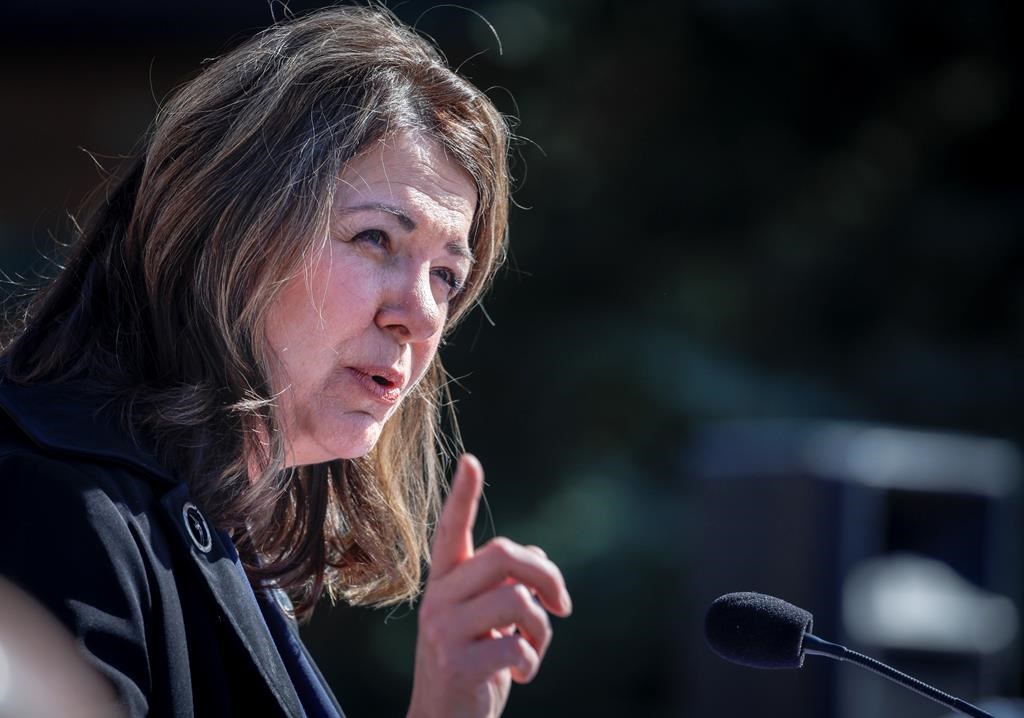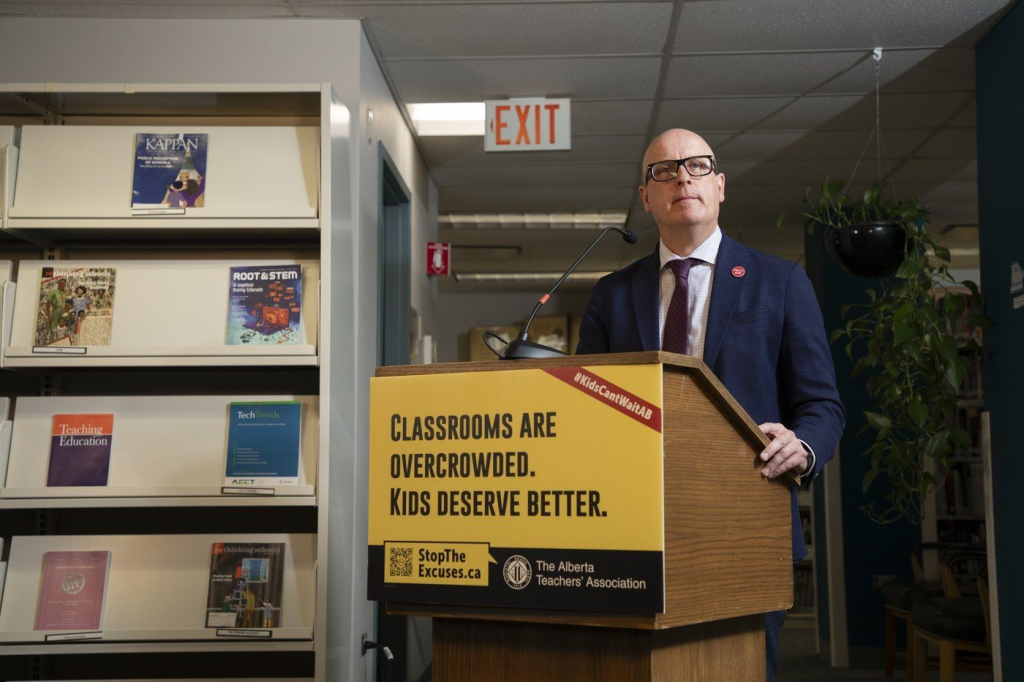Smith’s controversial comments could have little impact on voter intention: political analyst

Posted May 10, 2023 3:24 pm.
Last Updated May 10, 2023 3:26 pm.
A seemingly endless string of controversial comments made by Danielle Smith prior to becoming premier could have little impact on voter intention this election, a political scientist believes.
Lisa Young says with Alberta effectively being a two-party system, polls show recently unearthed videos are being met by Albertans with a shrug.
“Lots of people have already made up their minds one way or another and aren’t likely to be moved by the latest video that comes out,” said Young, a professor of political science at the University of Calgary.
A 2021 video shows UCP Leader Smith proposing to sell off hospitals – such as Rockyview, Peter Lougheed and South Health Campus – to private operators. The Alberta NDP is accusing Smith of having extreme views on public health care.
Earlier this week, a separate video resurfaced – taken from a 2021 podcast – in which Smith compares vaccinated Albertans with supporters of Nazi Germany and Adolf Hitler. Smith apologized for those comments.
The NDP claim the videos show Danielle Smith “wants to sell off our public hospitals to private operators.” #yeg #yyc #ableg pic.twitter.com/PwMkfMKPs0
— Courtney Theriault (@cspotweet) May 10, 2023
But Young says that has not translated in a loss of support for the UCP.
“We haven’t evidence of votes switching from one party to another that we can link to the videos and other info coming out,” she said.
Controversial statements have sunk Alberta campaigns before.
The Progressive Conservatives’ 43-year run in government screeched to a halt after then leader Jim Prentice asked Albertans to look in the mirror when discussing the province’s financial state. That insinuation – perhaps more so than Smith’s statements on COVID-19 or health care – evidently irked Albertans to the core.
“He was asking Albertans to face a reality they didn’t want to face,” said Young. “What’s really interesting is that neither of the parties this time around are asking Albertans to face those realities, they’re basically on the same fiscal tack that we’ve been on for some time.”
Things have also changed in a post-Trump world, Young believes, where even the most outrageous politicians are Teflon when it comes to scandals.
“There would be an outrageous statement or action and people would get worked up about it for 24 hours or 48 hours, but then something else would come along,” said the UCalgary professor. “So there was constant churn, but things didn’t seem to stick.”
Social media may have also dulled the impact of scandalous content by accelerating the speed by which a story moves through the news cycle – making the morning paper or evening news more obsolete.
“It’s possible for voters to live in information bubbles where they receive information from sources that they’ve selected because they agree with them.”








